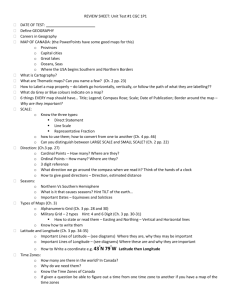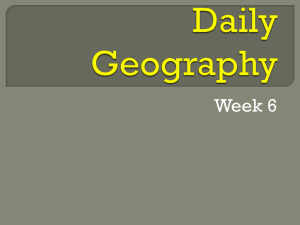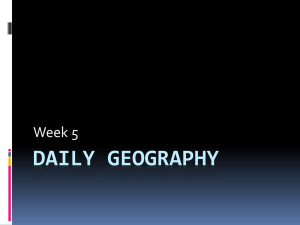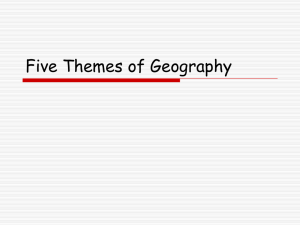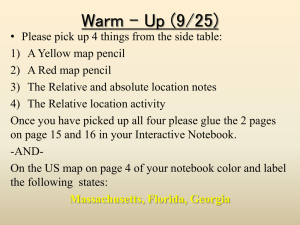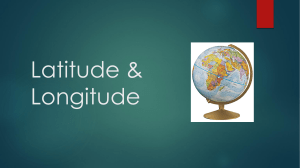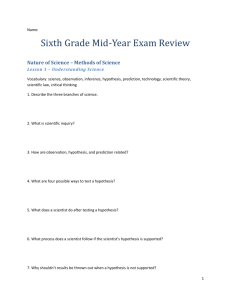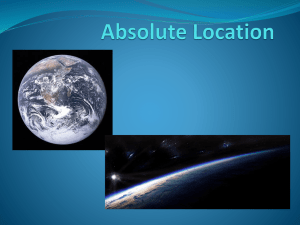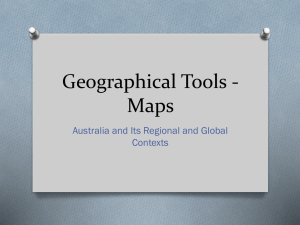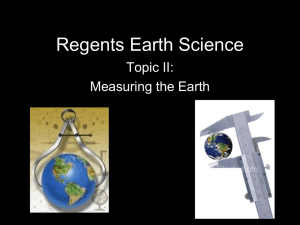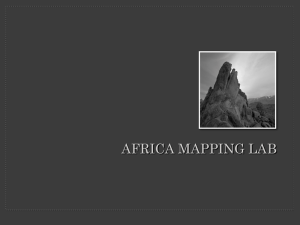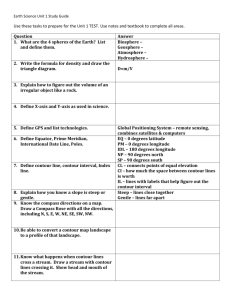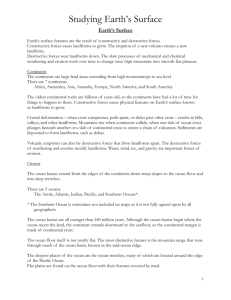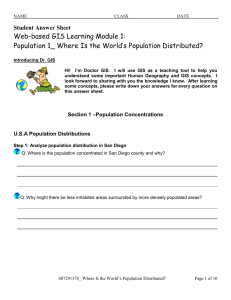Unit 1
advertisement
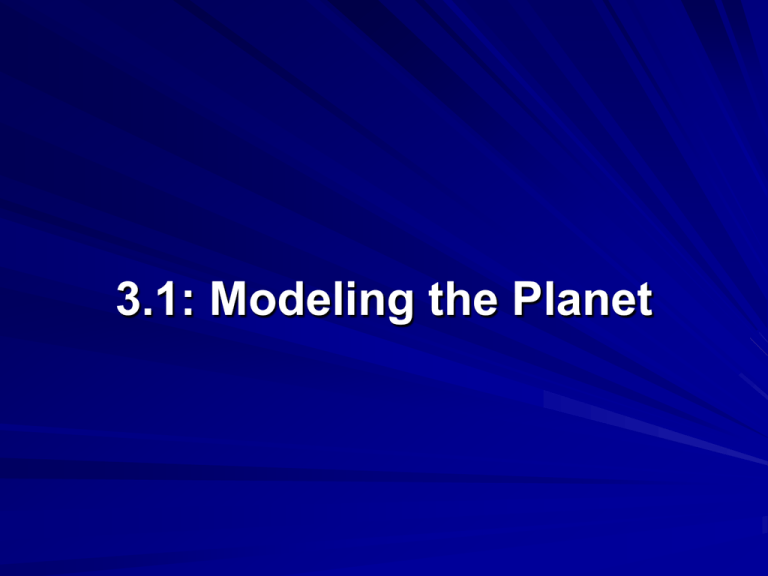
3.1: Modeling the Planet Modeling the Planet Maps Globe 3D, hard to fold. Map 2D, contains distortion. Cartographers - map makers. Map Projections Representations from a sphere to a flat surface. Mercator Projections Gnomonic Projection Polyconic Projection Map Scales The scale of the map tells you how the map’s features compare in size with the earth’s surface. How do map projections distort Earth’s surface? http://www.classzone.com/books/earth_science/terc/content/investigati ons/es0301/es0301page01.cfm Latitude and Longitude Hemispheres “Hemi” means half. Equator Divides N and S hemispheres. Prime Meridian Divides E and W hemispheres. Latitude 1 min of Lat = 60 nm or… Longitude Converges towards the poles. 1. Label the four contiguous US time zones: Eastern (the eastern US), Central (just west of the eastern time zone), Mountain (between Central and Pacific), and Pacific (the farwestern US). The contiguous US time zones are one hour apart; for example, if it is 1:00 in Pacific Time, it is 2:00 in Mountain time, 3:00 in Central time, and 4:00 in Eastern time. 2. If it is 12:00 in Central time, label the time in all the other time zones. 3. What time zone is your state in?___________________________ 4. Label Canada (the country north of the USA) and Mexico (the country south of the USA). 5. Label the Atlantic Ocean, The Pacific and the Gulf of Mexico. 6. How far is it from the Atlantic to the Pacific? 7. Going from the West to East Coast do you gain or lose time? 8. Do you lose or gain when going to Hawaii from L.A.? 9. If you traveled to the west and crossed the International Date Line into Asia what would happen to the time and date? 1. Draw a red line along the equator (0 degrees latitude). 2. Draw a purple line along the Prime Meridian (0 degrees longitude). 3. In which ocean is the location 10 degrees S latitude, 75 degrees E longitude located? Mark it on the map with a blue "X" and write the name of the ocean. 4. In which ocean is the location 30 degrees N latitude, 60 degrees W longitude located? Mark it on the map with a blue "Y" and write the name of the ocean. 5. Mark the following cities on the map in red: B. Beijing: 40°N, 116°E C. Cairo: 30°N, 31°E CT. Cape Town: 34°S, 18°E H. Hong Kong: 22°N, 114°E J. Jakarta: 6°S, 106°E LA. Los Angeles: 34°N, 118°W LI. Lima: 12°S, 77°W LO. London: 51°N, 0°W MC. Mexico City: 19°N, 99°W MO. Moscow: 55°N, 37°E MU. Mumbai: 19°N, 72°E NA. Nairobi: 1°S, 37°E NO. New Orleans: 30°N, 90°W NY. New York: 40°N, 74°W R, Rio de Janeiro: 23°S, 43°W SE. Seattle: 47°N, 122°W SY. Sydney: 34°S, 151°E TK. Tokyo: 35°N, 139°E T. Toronto: 43°N, 79°W Quiz 1. Globes are not flat. They are considered ___ dimensional. 2. Of the three map projections discussed, which would show a polar region best? 3. Which shows your position north of the Equator, Latitude or Longitude? 4. What do we call the zero degree line of Longitude? 5. What do we look for on a map to figure out how many miles one inch equals? 4.2: Earth’s Rotation Evidence for Rotation In 1851 Jean Foucault showed that the earth rotated using a pendulum. Pendulum demo http://www.montereyinstitute.org/courses/E nvironmental%20Science/course%20files/m ultimedia/noaa/lesson08/l8ex1.htm Axis and Rate of Rotation Effects of Rotation Day and night. Measuring time Standard time zones International Date Line How do latitude and longitude coordinates help us see patterns on Earth?” http://www.classzone.com/books/earth_science/terc/conten t/investigations/es0303/es0303page01.cfm?chapter_no=in vestigation Pass out Lat & Long maps… 3.3: Topographic Maps Quiz 1. T / F Pendulums can prove that the Earth is really rotating. 2. The North and South Pole are where the Earth rotates on its ___________ 3. Since it takes 24 hours for the Earth to rotate, it is divided up into ____ time zones. 4. Time zones divide hours, the International Date Line divides ______ Topographic Maps Topographic maps show topography – surface features Contour lines Contour interval Slope and elevation Earth's Varied Topography http://www.classzone.com/books/earth_science/terc/co ntent/investigations/es0307/es0307page01.cfm?chapte r_no=03 Stereoscope activity Quiz 1. T / F Topographic maps show us the surface features of the Earth. 2. Why are contour lines always level(flat)? 3. Closely spaced contour line show us what kind of slope - steep / gradual ? 4. The color blue on a topographical map represents? 5. Why do we have magnetic declination? End
